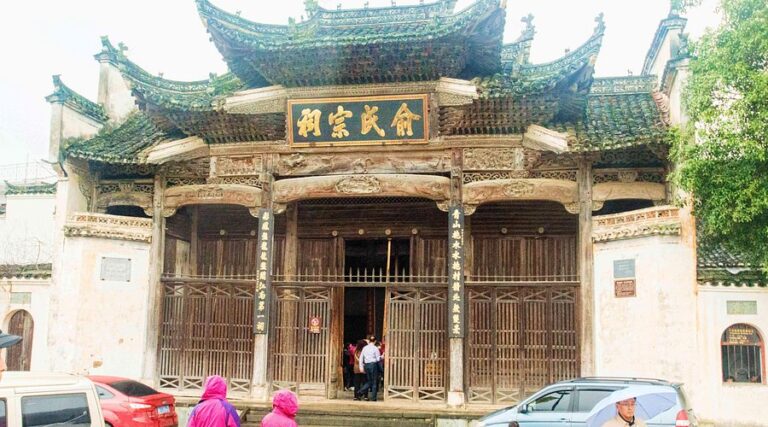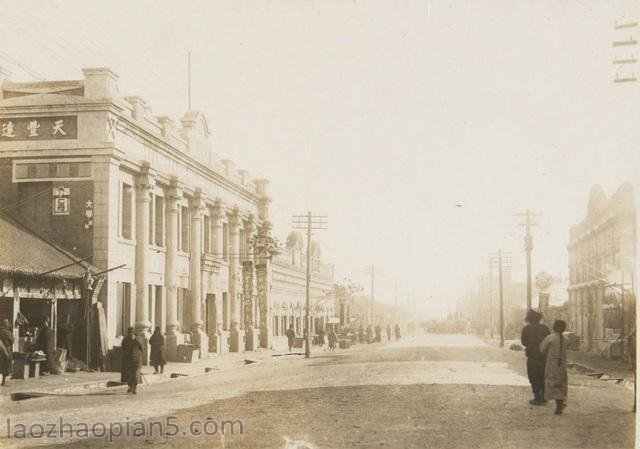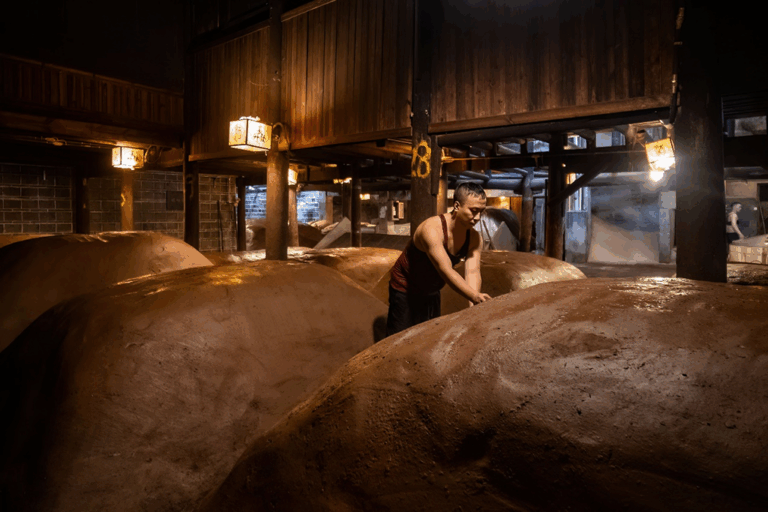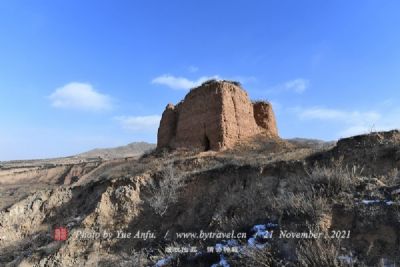Anqing Yezhai Kangri Zhenwang Jiangshi Gongmu: Insights into Anhui’s Revolutionary Heritage
An Essential Guide to Visiting Anqing Yezhai Kangri Zhenwang Jiangshi Gongmu
In This Guide
- An Essential Guide to Visiting Anqing Yezhai Kangri Zhenwang Jiangshi Gongmu
- The Rich History of Anqing Yezhai Kangri Zhenwang Jiangshi Gongmu
- Main Highlights: What to See at Anqing Yezhai Kangri Zhenwang Jiangshi Gongmu
- Planning Your Visit: A Practical Guide
- Tickets, Hours, and Booking
- How to Get There
- Local Cuisine and Accommodation
- Frequently Asked Questions
- Final Thoughts on Your Trip
Nestled amid the stunning landscapes of Anhui province, the Anqing Yezhai Kangri Zhenwang Jiangshi Gongmu, or the Yezhai Anti-Japanese Martyrs Cemetery, stands as a poignant testament to the sacrifices made during one of China’s most turbulent periods. Established in the early 1940s, this solemn site honors the memory of 985 fallen soldiers from the 176th Division of the National Revolutionary Army, who valiantly fought against Japanese forces during the Second Sino-Japanese War.
Set against the backdrop of the majestic Tianzhu Mountains, this cemetery is not just a burial ground; it is a sanctuary of remembrance and patriotism. The 176th Division, a key player in significant battles such as the Shanghai and Wuhan confrontations, is celebrated for its relentless spirit and dedication to the defense of the nation. The cemetery, built with contributions from local citizens across 13 counties, is unique in its dual purpose: it serves both as a memorial and as the grounds of Yezhai Middle School, a hub for nurturing the legacy of the martyrs and fostering a sense of national pride among students.
Designated as a major cultural heritage site, the Yezhai Anti-Japanese Martyrs Cemetery is a crucial location for understanding China’s wartime history and the collective memory of its people. It embodies the enduring spirit of resistance, showcasing the determination and sacrifice that characterized the struggle against oppression. Visitors to this hallowed ground can not only pay their respects but also engage with the rich historical narratives that echo through its solemn architecture and serene surroundings.
The Rich History of Anqing Yezhai Kangri Zhenwang Jiangshi Gongmu
Nestled in the serene foothills of Tianzhu Mountain in Anhui Province, the Anqing Yezhai Kangri Zhenwang Jiangshi Gongmu (野寨抗日阵亡将士公墓) stands as a poignant memorial to the sacrifices made by Chinese soldiers during the Second Sino-Japanese War. Established in 1942 and completed in 1943, this significant site honors the remains of 985 fallen soldiers from the 176th Division of the National Revolutionary Army, a unit known for its fierce resistance against Japanese forces.
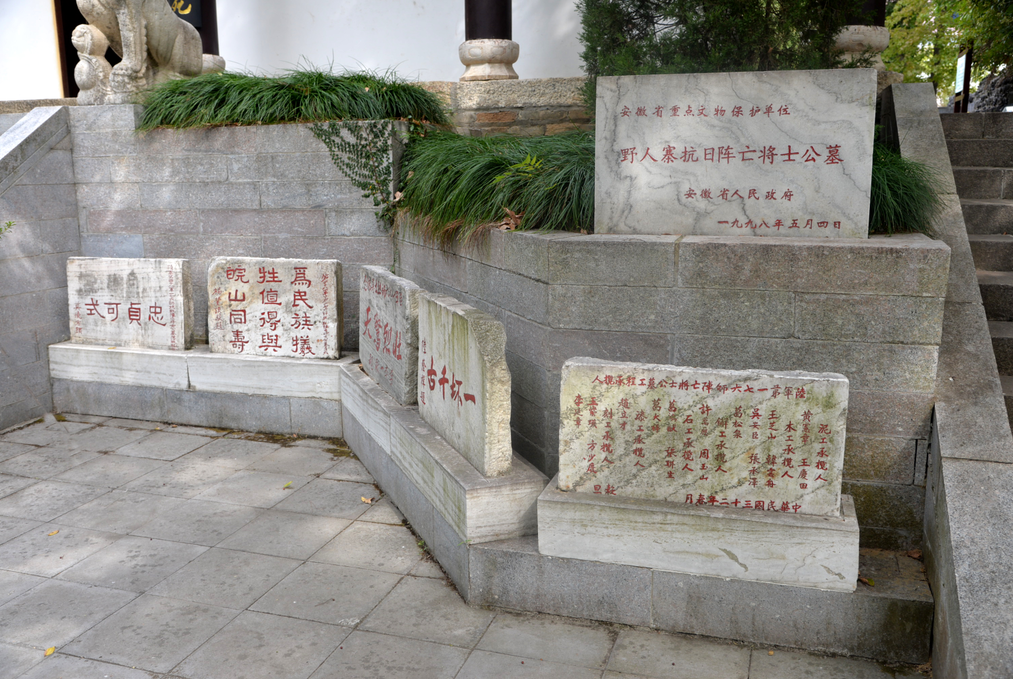
Anqing Yezhai Kangri Zhenwang Jiangshi Gongmu.
The 176th Division, a vestige of the legendary 19th Route Army, played a critical role in major battles such as the Shanghai and Wuhan campaigns. This division was unique in its participation in the Battle of Shanghai on two occasions, showcasing the valor and relentless spirit of its troops. Throughout the war, the division fought valiantly across five provinces, ultimately suffering heavy casualties with over 3,700 soldiers killed in action. The community’s commitment to memorializing these heroes was galvanized in 1942, when prominent figures from Anhui and Hubei provinces rallied support to construct this cemetery, initially intended to inter 1,200 soldiers’ remains.
The cemetery itself is not just a resting place but a symbol of national resilience and unity. It encompasses 175 acres, featuring a main burial area of 3,432 square meters, adorned with a solemn arrangement of monuments that reflect the dignity and sacrifice of the soldiers. Each of the 985 remains is carefully housed in clay urns, marked with the soldiers’ names and origins.
In a remarkable act of integration, the cemetery is located within the grounds of Yezhai Middle School, the only school in China built to protect a martyrs’ cemetery. This unique arrangement underscores the ongoing commitment to remember and educate future generations about the sacrifices made during the war. The school has become a hub for patriotic education, fostering a spirit of national pride and resilience among its students.
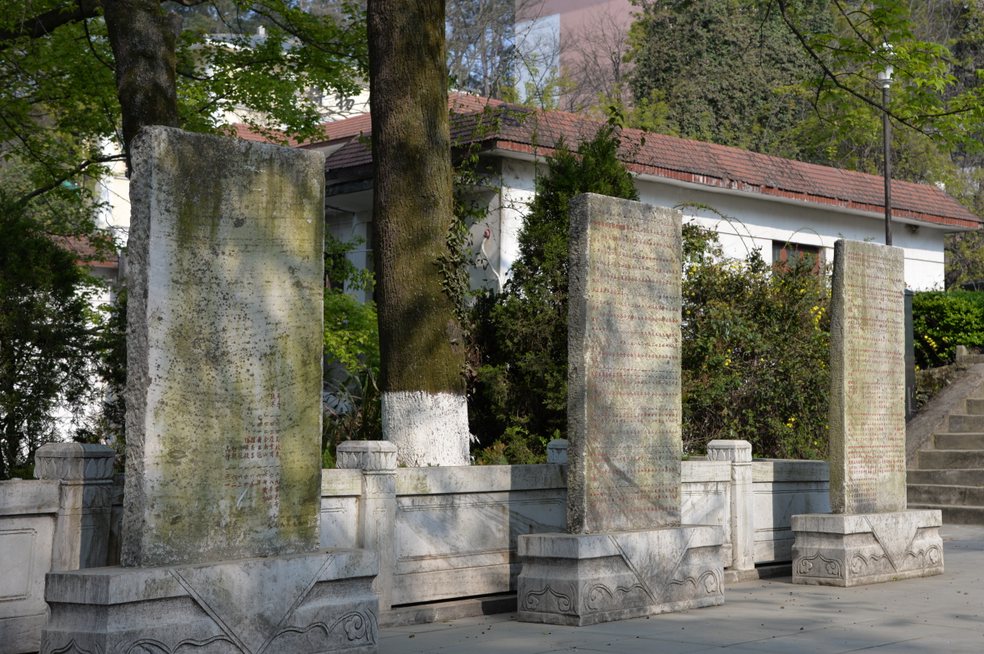
Anqing Yezhai Kangri Zhenwang Jiangshi Gongmu.
Over the decades, the Anqing Yezhai Kangri Zhenwang Jiangshi Gongmu has evolved into a crucial site for cultural and historical education, recognized as a National Key Cultural Relic Protection Unit in 2019. It serves not only as a memorial but also as a vital platform for promoting awareness of the sacrifices made during the war against fascism, reflecting the collective memory and the enduring spirit of the Chinese people.
As visitors arrive to pay their respects, they are reminded of the valiant efforts of the 176th Division and the broader narrative of the Chinese resistance during World War II. The Anqing Yezhai Kangri Zhenwang Jiangshi Gongmu stands as a testament to the bravery of those who fought for their country, embodying the spirit of sacrifice and the unyielding quest for freedom that resonates through Chinese history.
Main Highlights: What to See at Anqing Yezhai Kangri Zhenwang Jiangshi Gongmu
Nestled at the foothills of the picturesque Tianzhu Mountain in Anhui Province, the Anqing Yezhai Kangri Zhenwang Jiangshi Gongmu (野寨抗日阵亡将士公墓) serves as a poignant reminder of the sacrifices made during China’s resistance against Japanese aggression during World War II.
Constructed in 1943, this meticulously preserved war memorial honors the 985 fallen soldiers of the National Revolutionary Army’s 176th Division, who valiantly fought in critical battles across five provinces. The division, a descendant of the renowned 19th Route Army, played a significant role in major conflicts such as the Battle of Shanghai and the Battle of Wuhan. Their legacy is immortalized in this serene resting place, which features elaborate memorial structures including a monument, a hall of loyalty, and various pavilions, all thoughtfully integrated into the surrounding landscape.
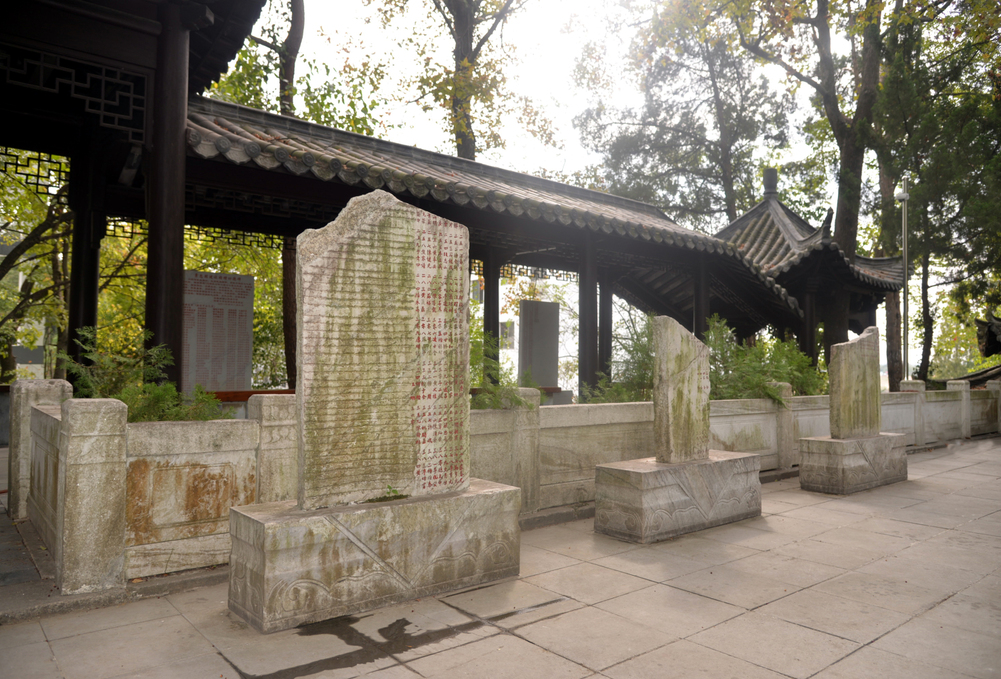
Anqing Yezhai Kangri Zhenwang Jiangshi Gongmu.
The site is not merely a cemetery; it is a cultural and educational landmark. Located within the campus of Yezhai Middle School, the memorial is unique in that the school was founded specifically to safeguard the cemetery and foster the legacy of the heroes buried here. This relationship between the memorial and the educational institution underscores a commitment to patriotism and the cultivation of future generations who cherish the sacrifices of their forebears.
Visitors to the site can explore the memorial’s thoughtful layout, which includes numerous inscriptions and sculptures honoring key figures of the time. The tranquil atmosphere invites reflection on the courage and resilience of those who fought for their country. Additionally, the memorial serves as a vital center for patriotic education, with the school frequently engaging in activities that commemorate the heroes of the past.
As a designated national cultural heritage site, the Anqing Yezhai Kangri Zhenwang Jiangshi Gongmu stands as a testament to the enduring spirit of Chinese resistance and unity in the face of adversity, making it an essential destination for those looking to understand the profound history of China’s wartime sacrifices.
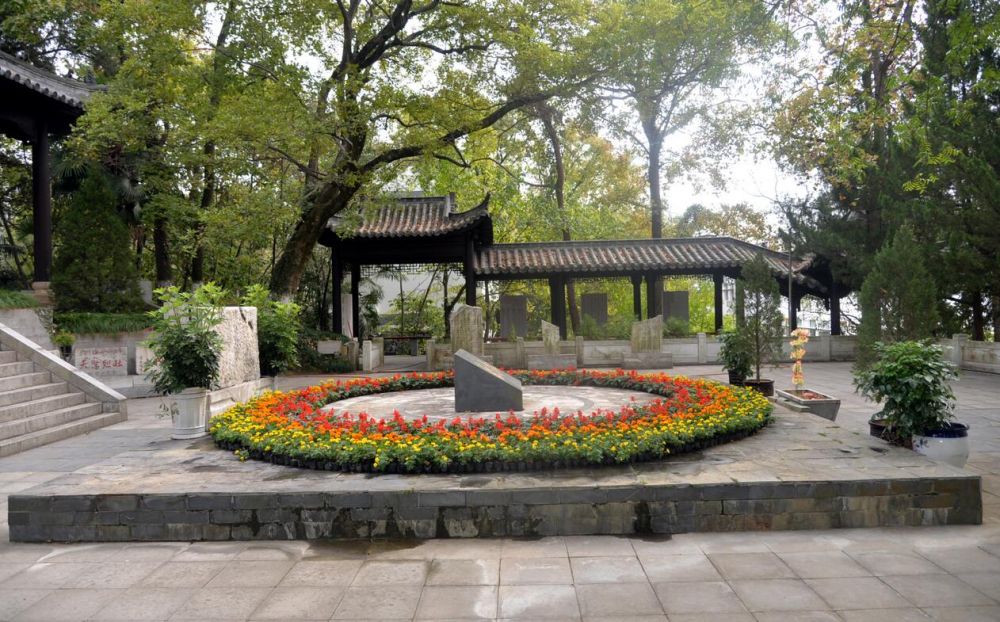
Anqing Yezhai Kangri Zhenwang Jiangshi Gongmu.
Planning Your Visit: A Practical Guide
Visiting the Anqing Yezhai Kangri Zhenwang Jiangshi Gongmu (野寨抗日阵亡将士公墓) offers a unique opportunity to delve into a significant chapter of Chinese history while paying tribute to the brave souls who fought in the Second Sino-Japanese War. Here’s a practical guide to help you make the most of your visit.
Getting There
Location: The memorial cemetery is located within the campus of Yezhai Middle School in Qianshan City, Anhui Province, at the foot of Tianzhu Mountain, a recognized World Geopark.
Transport Options:
– By Air: The nearest airport is Anqing Tianzhushan Airport, approximately 40 kilometers away. From the airport, you can take a taxi or arrange a shuttle to the site.
– By Train: Anqing Railway Station is well connected to major cities. From the station, you can take a taxi or public transport to Yezhai Middle School.
– By Bus: There are local buses that connect to Qianshan City, and you can transfer to a taxi for the final leg of your journey.
Opening Hours
The cemetery and its associated museum are generally open to visitors from 8:00 AM to 5:00 PM daily. It is advisable to check for any holiday hours or special events that might affect accessibility.
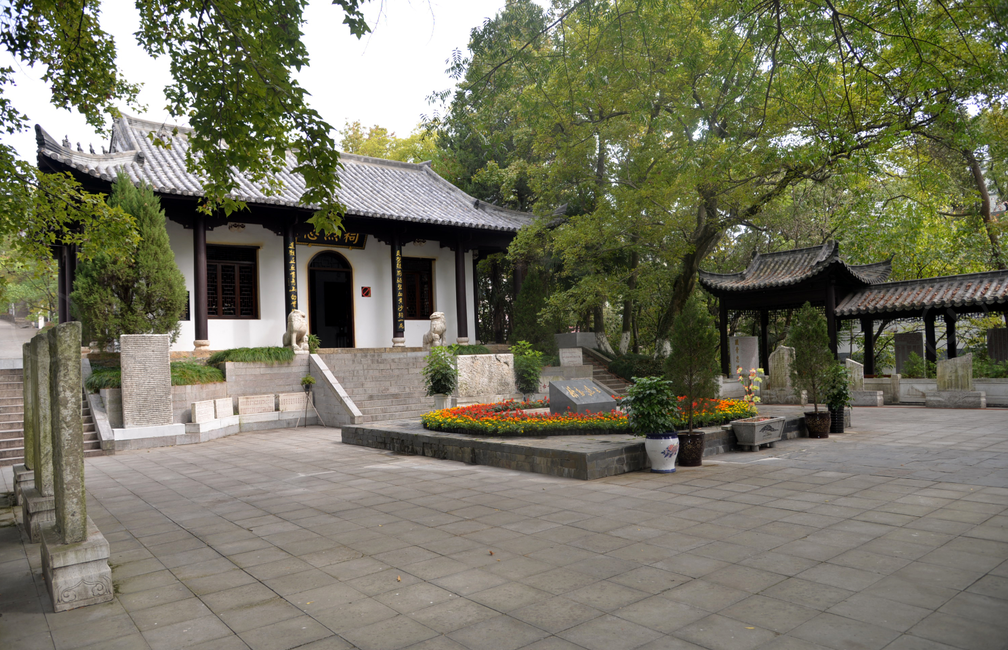
Anqing Yezhai Kangri Zhenwang Jiangshi Gongmu.
Admission Fees
Entry to the Anqing Yezhai Kangri Zhenwang Jiangshi Gongmu is typically free, but donations are encouraged to support the maintenance of the site and its educational programs.
What to Expect
The cemetery is a solemn and respectful tribute to the 985 soldiers from the 176th Division of the National Revolutionary Army who lost their lives during the anti-Japanese efforts. Key features include:
- Main Cemetery Area: The graves are arranged meticulously, with each soldier’s remains housed in a ceramic urn, demonstrating the care taken to honor their memory.
- Memorial Structures: The cemetery includes several commemorative buildings such as the Loyal Martyrs Memorial Hall and various pavilions. These structures are designed to evoke a sense of reverence and reflection.
- Exhibits: The on-site museum showcases artifacts, documents, and photographs from the era, providing a deeper understanding of the sacrifices made during the war.
Educational Opportunities
The site serves as an important educational resource, particularly for students. Guided tours are often available, and special programs may be organized for schools to enhance understanding of patriotism and history among young people.
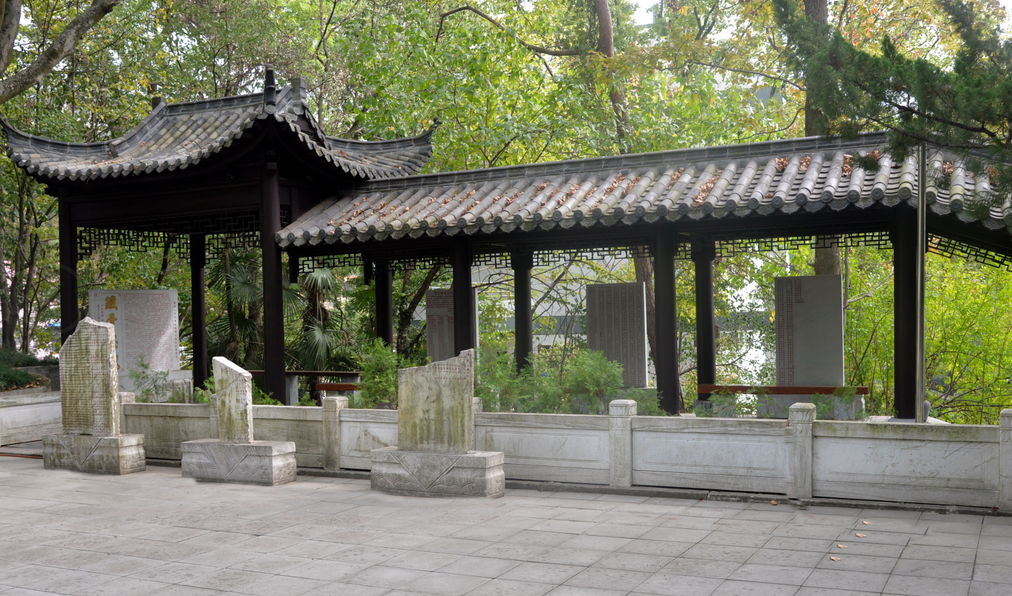
Anqing Yezhai Kangri Zhenwang Jiangshi Gongmu.
Nearby Attractions
While visiting, consider exploring other notable sites in the area:
– Tianzhu Mountain: A scenic destination offering hiking trails, temples, and stunning natural views.
– Historical Sites: Visit other local memorials and museums dedicated to the anti-Japanese war and regional history.
Visitor Tips
- Dress Appropriately: As a memorial site, wear respectful clothing. Comfortable shoes are recommended for walking around.
- Photography: While photography is generally allowed, be mindful of the solemn nature of the site and avoid disruptive behavior.
- Plan Your Visit: Allocate sufficient time to explore both the cemetery and the museum. A visit can take anywhere from one to three hours depending on your interest level.
Conclusion
The Anqing Yezhai Kangri Zhenwang Jiangshi Gongmu is not just a cemetery; it is a poignant reminder of the sacrifices made during a tumultuous time in Chinese history. By visiting, you engage in a meaningful reflection on patriotism, resilience, and the enduring spirit of those who fought for their country.
Tickets, Hours, and Booking
Visiting the Anqing Yezhai Kangri Zhenwang Jiangshi Gongmu (野寨抗日阵亡将士公墓) is a profound experience that connects you with China’s rich history and the sacrifices made during the Second Sino-Japanese War. Here’s what you need to know about tickets and access:
Admission Information
-
Entry Fee: The memorial site is free to enter, allowing visitors to pay their respects without any financial barrier. However, donations for the upkeep and preservation of the site are welcome and appreciated.
-
Opening Hours: The site is open daily from 8:00 AM to 5:00 PM. It is advisable to visit during these hours to ensure you have ample time to explore the memorial and its surroundings.
-
Location: The memorial is situated within the grounds of Yezhai Middle School in Qianshan, near the picturesque Tianzhushan (Heaven Pillar Mountain) scenic area. This unique location within a school campus is a significant aspect of its history, as the school was established to honor the fallen soldiers.
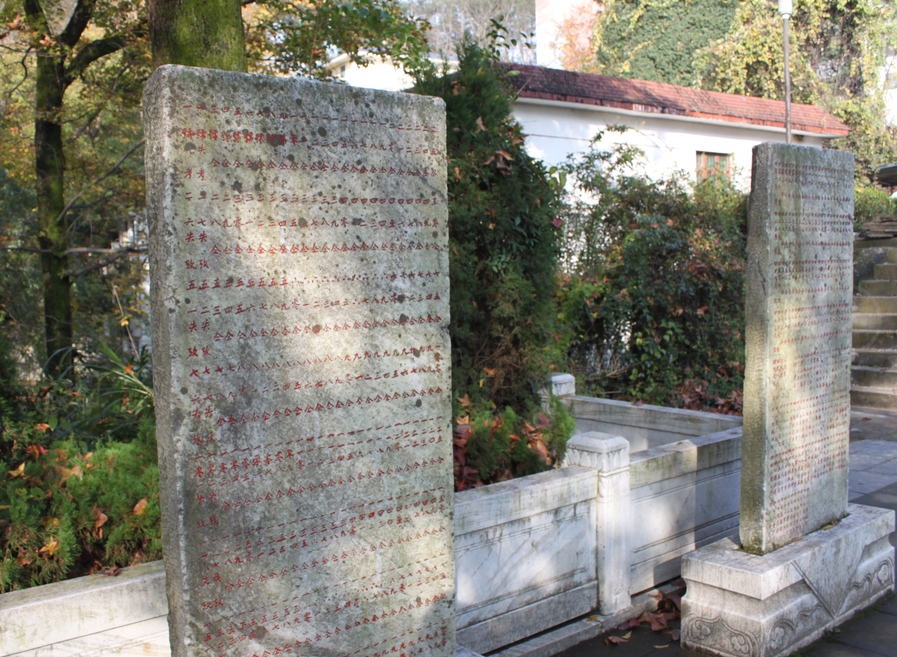
Anqing Yezhai Kangri Zhenwang Jiangshi Gongmu.
Guided Tours
- Guided Tours: While self-exploration of the memorial is encouraged, guided tours are available. These tours provide deeper insights into the history of the 176th Division and the broader context of the Second Sino-Japanese War. It’s recommended to book these tours in advance, especially during peak tourist seasons.
Accessibility
-
Getting There: The site is accessible by public transportation, with local buses and taxis available from the center of Anqing City. If you are traveling by car, there are parking facilities available near the entrance.
-
Facilities: The memorial grounds are equipped with basic facilities to ensure a comfortable visit. However, it’s advisable to carry water and snacks, particularly if you plan to spend a significant amount of time exploring the area.
Visitor Guidelines
-
Respectful Conduct: As a site of remembrance, visitors are encouraged to maintain a respectful demeanor. Silence is appreciated in areas of the memorial to honor the memory of those who sacrificed their lives.
-
Photography: Photography is allowed, but visitors should be mindful of the solemnity of the site and avoid intrusive behavior that may disturb the peace of the memorial.
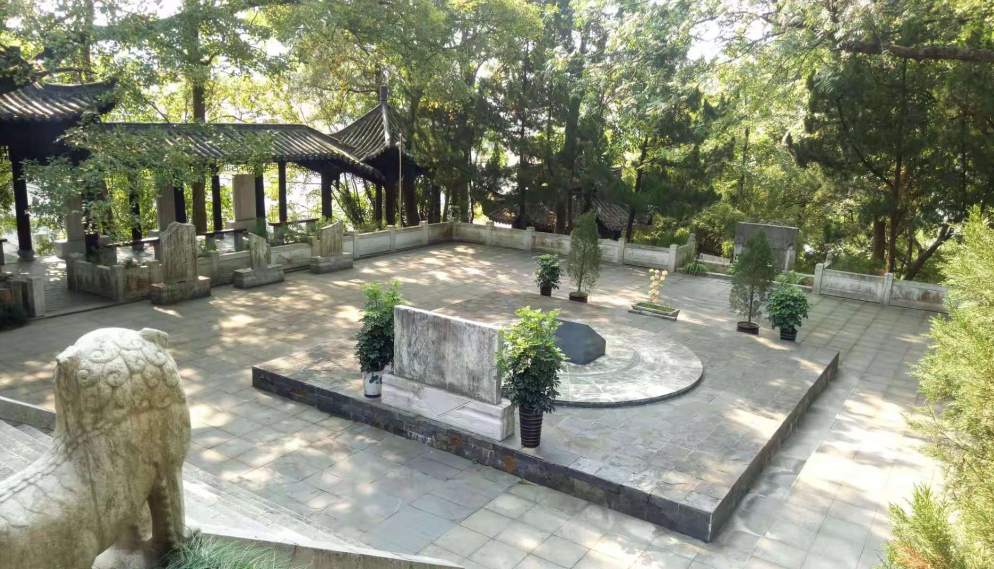
Anqing Yezhai Kangri Zhenwang Jiangshi Gongmu.
By visiting the Anqing Yezhai Kangri Zhenwang Jiangshi Gongmu, you not only pay tribute to the heroes of the past but also engage with an essential part of China’s historical narrative.
How to Get There
Getting to Anqing Yezhai Kangri Zhenwang Jiangshi Gongmu (野寨抗日阵亡将士公墓) is quite straightforward, thanks to its strategic location in the scenic region of Qianshan County, Anhui Province. The memorial site is nestled within the grounds of Yezhai Middle School, at the foot of the iconic Tianzhu Mountain, making it accessible both by public transport and private vehicles.
By Air
The nearest major airport is Anqing Tianzhushan Airport (AQG), located approximately 30 kilometers from the memorial. This airport connects to several cities within China and offers a convenient entry point for international travelers. From the airport, visitors can hire a taxi or use ride-sharing services to reach the memorial.
By Train
Anqing Railway Station is the closest major rail hub, situated about 20 kilometers from the site. The station is well-connected to several cities, including Shanghai, Nanjing, and Wuhan. Upon arrival at Anqing Railway Station, visitors can take a taxi or local bus to reach the memorial. The journey by taxi typically takes around 30 minutes, while local buses may take longer, depending on the route and traffic conditions.
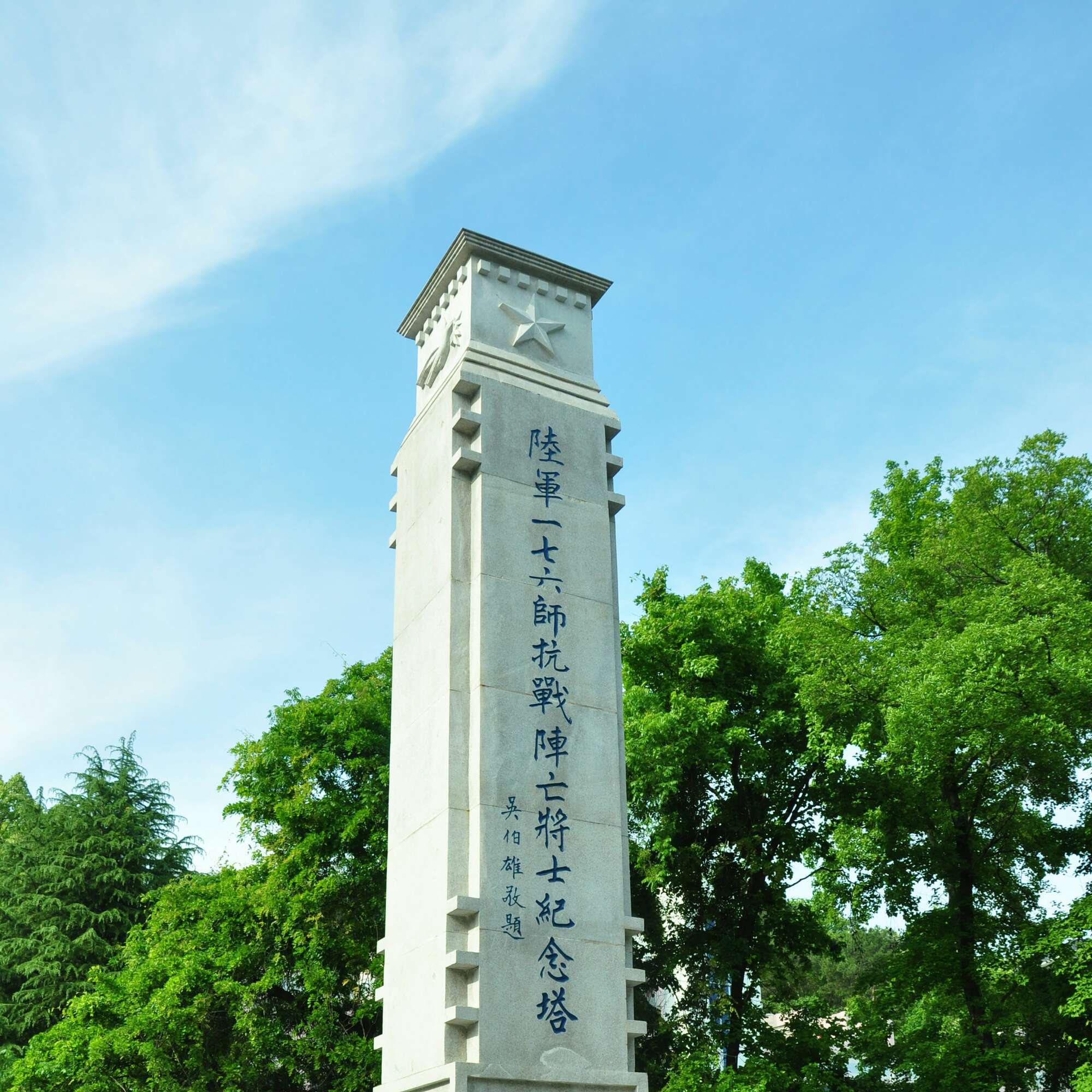
Anqing Yezhai Kangri Zhenwang Jiangshi Gongmu.
By Bus
For those traveling from nearby cities, long-distance buses run frequently to Anqing City. The Anqing Long-distance Bus Station serves as the main terminal, with routes connecting to major destinations like Hefei, Nanjing, and Wuhan. Once in Anqing, you can take a local bus or taxi to reach the memorial. Buses to Qianshan typically depart from the Anqing City Bus Station, making it easy to transfer.
Local Transportation
Within Anqing and Qianshan County, taxis and ride-hailing services such as Didi Chuxing are readily available and provide a comfortable means of transport to the memorial. Public buses also operate in the area, although schedules may vary, so it’s advisable to check local timetables.
Accessibility
The memorial is designed to be accessible to all visitors, with pathways and facilities accommodating those with mobility challenges. If you plan to visit with a larger group, consider arranging for a private coach, which can be more convenient and allow for a flexible schedule.
Parking
If you are driving, there is parking available near the entrance of Yezhai Middle School. However, be mindful of local regulations and any designated parking areas to avoid fines.
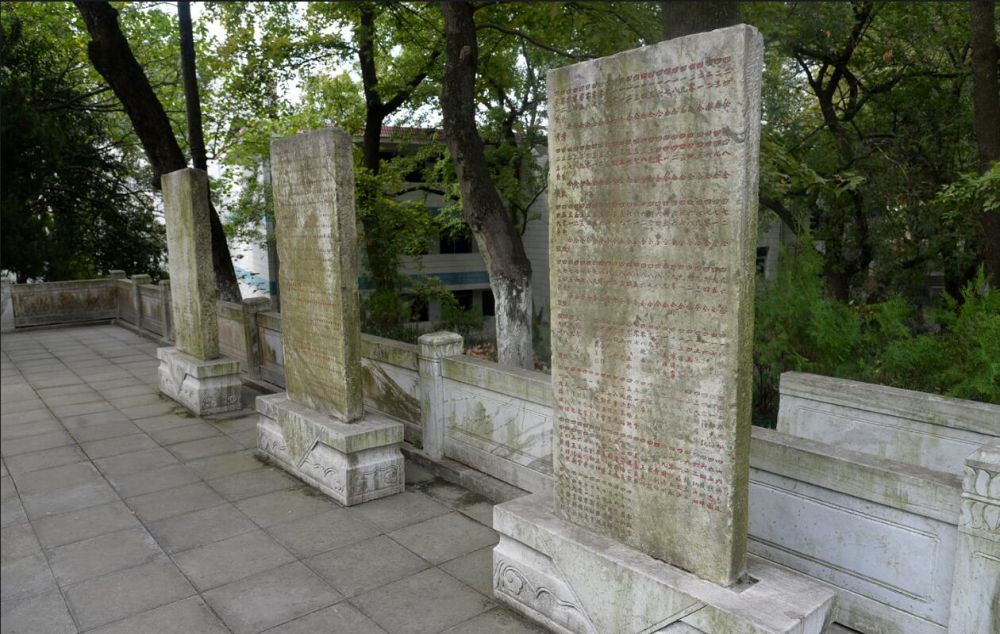
Anqing Yezhai Kangri Zhenwang Jiangshi Gongmu.
Conclusion
Whether you choose to fly, take the train, or drive, reaching Anqing Yezhai Kangri Zhenwang Jiangshi Gongmu is manageable and offers a chance to explore the rich history of the site. Its location amidst natural beauty adds to the overall experience, making it a memorable visit for anyone interested in China’s wartime history and cultural heritage.
Local Cuisine and Accommodation
When visiting the Anqing Yezhai Kangri Zhenwang Jiangshi Gongmu, or the Yezhai Anti-Japanese Martyrs’ Cemetery, you’ll find yourself in a region rich in history and culture. After exploring the cemetery and its surrounding memorials, you might be looking for local dining options and places to stay. Here’s a guide to enhance your visit.
Dining Options
Local Cuisine:
The area around the cemetery is known for its authentic Anhui cuisine, which features a variety of flavors and cooking techniques. Here are a few recommendations:
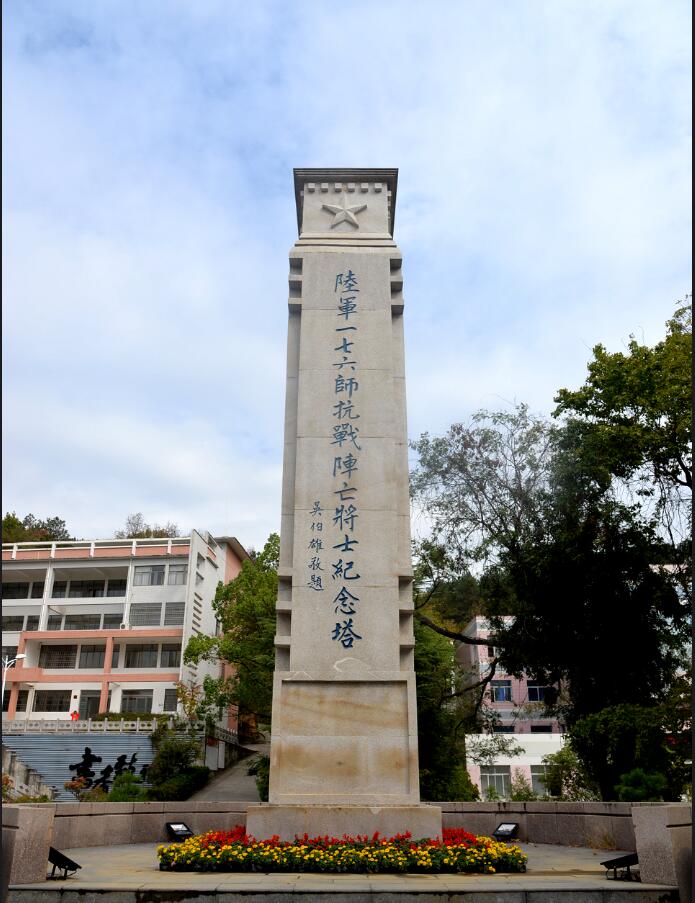
Anqing Yezhai Kangri Zhenwang Jiangshi Gongmu.
-
Qianshan Yuyuan Restaurant: Located just a short drive from the cemetery, this restaurant offers traditional dishes made from locally sourced ingredients. Their signature dishes include Stir-fried River Shrimp and Braised Bamboo Shoots.
-
Anqing Old Street Snacks: A must-visit for food lovers, the Old Street is lined with stalls offering local snacks. Try the famous Anhui Tofu and Steamed Buns filled with a variety of meats and vegetables. The bustling atmosphere makes it a great place to experience local life.
-
Jiangnan Flavor Restaurant: This restaurant specializes in Anhui-style hot pot, where you can select fresh ingredients to cook at your table. It’s a fun and interactive dining experience that’s perfect for groups.
Cafés and Quick Bites:
If you prefer a lighter meal or a quick drink, there are several cafés in the vicinity:
-
Café 1920: A cozy spot perfect for a coffee break. They serve a range of beverages, including local teas and freshly brewed coffee, along with light snacks.
-
Wild Goose Bakery: Known for its freshly baked goods, this bakery offers a selection of pastries and breads, ideal for a quick breakfast or snack on the go.
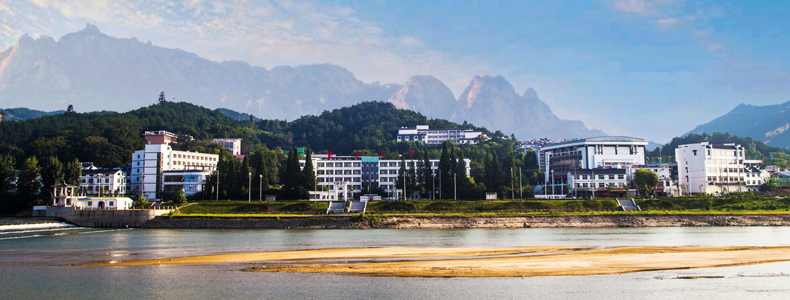
Anqing Yezhai Kangri Zhenwang Jiangshi Gongmu.
Accommodation
Hotels Nearby:
-
Anqing International Hotel: This hotel offers comfortable accommodations with modern amenities. It’s located close to the city center, making it easy to explore local attractions. Guests rave about the breakfast buffet and the attentive staff.
-
Yuejin Hotel: A budget-friendly option, this hotel provides clean and simple rooms. It’s a great choice for travelers looking to save without compromising on comfort.
-
Wanda Realm Anqing: For those seeking a more luxurious stay, this hotel features spacious rooms and a variety of facilities, including a spa and fitness center. The on-site restaurant offers a blend of local and international cuisine.
Hostels and Guesthouses:
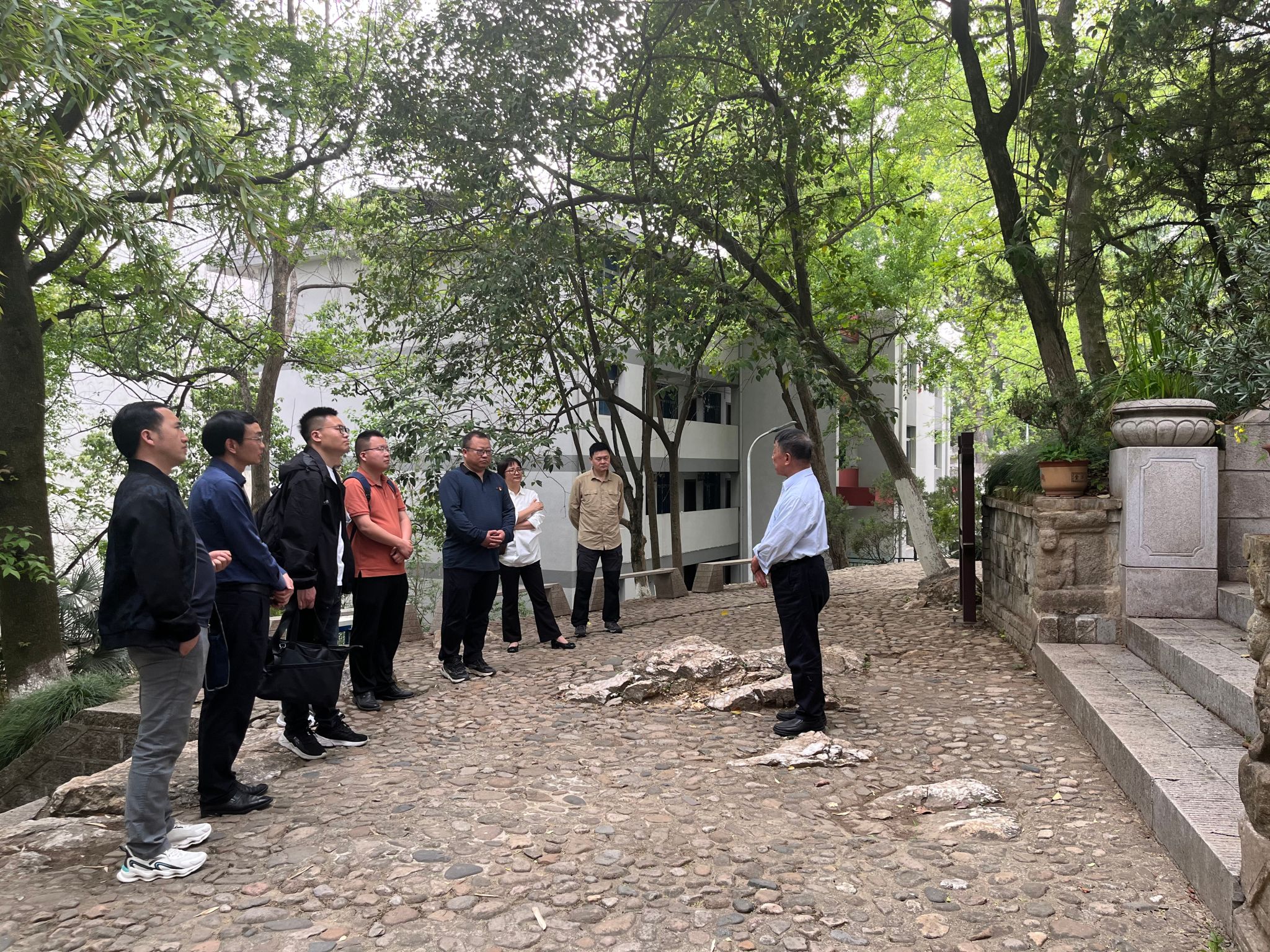
Anqing Yezhai Kangri Zhenwang Jiangshi Gongmu.
-
Backpackers’ Lodge: Ideal for solo travelers or those on a budget, this hostel offers shared dorms and a vibrant communal area. It’s a great place to meet fellow travelers and share stories.
-
Yezhai Homestay: For a unique experience, consider staying in a local homestay. This option allows you to immerse yourself in the local culture while enjoying home-cooked meals prepared by your hosts.
With these dining and accommodation options, your visit to the Yezhai Anti-Japanese Martyrs’ Cemetery can be both enriching and comfortable. Enjoy the rich history and culture of Anqing while indulging in its culinary delights and comfortable stays.
Frequently Asked Questions
-
Where is the Anqing Yezhai Kangri Zhenwang Jiangshi Gongmu located?
The Anqing Yezhai Kangri Zhenwang Jiangshi Gongmu, also known as the Yezhai Anti-Japanese Martyrs’ Cemetery, is situated within the campus of Yezhai Middle School in Qianshan City, Anhui Province, near the foot of the picturesque Tianzhushan Mountain. -
What historical significance does the cemetery hold?
Established in 1942 and completed in 1943, the cemetery honors 985 soldiers from the National Revolutionary Army’s 176th Division, who fought valiantly against Japanese forces during the Second Sino-Japanese War. It serves as a poignant reminder of the sacrifices made by these soldiers and the broader history of China’s resistance against Japanese aggression. -
Can visitors access the cemetery and surrounding areas?
Yes, the cemetery is open to visitors, and it is located within a 5A-rated national scenic area, making it accessible and welcoming to those interested in exploring this important historical site. -
What facilities are available for visitors?
The cemetery features several memorial structures, including a memorial hall, commemorative towers, and pavilions. There are also educational displays detailing the history of the 176th Division and their contributions to the war, as well as a museum housing war relics. -
Are there any guided tours or educational programs available?
Yes, Yezhai Middle School, which shares its grounds with the cemetery, offers educational programs focused on patriotism and the history of the Anti-Japanese War. Visitors can participate in guided tours that provide in-depth insights into the cemetery’s significance. -
Is there an entry fee to visit the cemetery?
Currently, there is no entry fee required to visit the Anqing Yezhai Kangri Zhenwang Jiangshi Gongmu. However, it is advisable to check for any updates or changes to this policy before your visit. -
What is the best time to visit the cemetery?
The cemetery can be visited year-round, but spring and autumn may provide the most pleasant weather. Special commemorative events are often held on national holidays, such as September 3rd, which marks the victory in the Anti-Japanese War, making these times particularly significant for visitors. -
How can I get to the cemetery using public transportation?
The cemetery is well-connected by local public transportation. Visitors can take a bus to Qianshan City and then transfer to a local minibus or taxi that goes directly to Yezhai Middle School. It is advisable to check local transit schedules for the most accurate information on routes and timings.
Final Thoughts on Your Trip
In closing, the Yezhai Kangri Zhenwang Jiangshi Gongmu stands as a poignant reminder of the valor and sacrifice of the soldiers who fought bravely during a turbulent chapter in China’s history. Nestled at the foothills of Tianzhushan, this memorial not only honors the 985 fallen heroes of the 176th Division but also serves as a vital educational hub, fostering a spirit of patriotism among current and future generations.
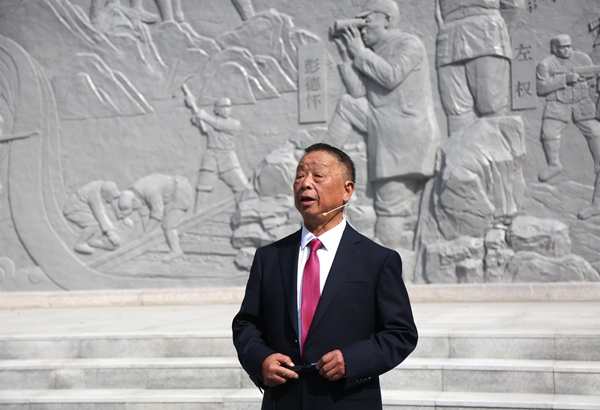
Anqing Yezhai Kangri Zhenwang Jiangshi Gongmu.
Visiting this sacred site offers an opportunity to reflect on the resilience of the human spirit and the indomitable will to protect one’s homeland against tyranny. It is a place where history comes alive, encouraging visitors to remember the sacrifices made for peace and freedom, and inspiring a commitment to honor that legacy. The Yezhai memorial is not just a graveyard; it is a testament to the enduring spirit of a nation that continues to rise and thrive. As you walk through its solemn grounds, you are invited to connect with a past that shapes the future, ensuring that the lessons learned from sacrifice and courage remain etched in the hearts of all who visit.
